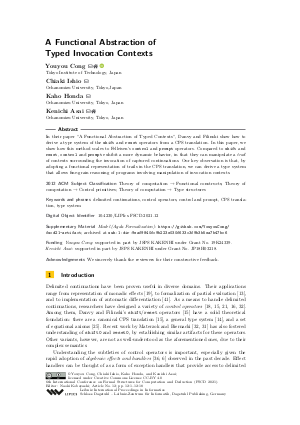LIPIcs.FSCD.2021.12.pdf
- Filesize: 0.84 MB
- 18 pages

 Creative Commons Attribution 4.0 International license
Creative Commons Attribution 4.0 International license






























Feedback for Dagstuhl Publishing